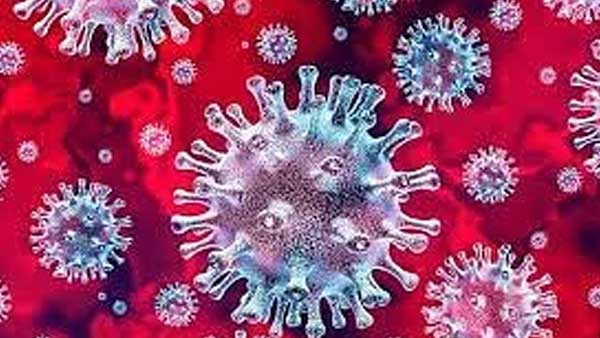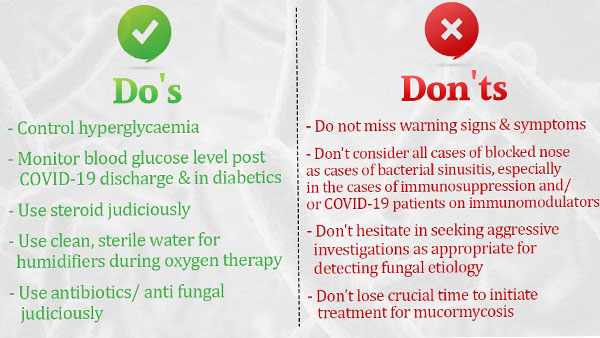
Explained: How is black fungus linked to COVID-19
New Delhi, May 14: Even as we try our best to protect ourselves from and cope with COVID-19, there is another threat being posed by a fungus, which we must know and act upon. Mucormycosis, a fungal infection, is being reported in a few COVID-19 patients during or post recovery. As per a statement given by the Health Minister of Maharashtra two days ago, more than 2000 people had already been affected by this fungal infection in the state; 10 people had even succumbed to it. Some patients even lost their eyesight.

What causes Mucormycosis?
Mucormycosis or black fungus is a complication caused by fungal infection. People catch mucormycosis by coming in contact with the fungal spores in the environment. It can also develop on the skin after the fungus enters the skin through a cut, scrape, burn, or other type of skin trauma.

The disease is being detected among patients who are recovering or have recovered from COVID-19. Moreover, anyone who is diabetic and whose immune system is not functioning well needs to be on the guard against this.

According to an advisory issued by the Indian Council of Medical Research, the following conditions in COVID-19 patients increase the risk of mucormycosis infection:
- Uncontrolled diabetes
- Weakening of immune system due to use of steroids
- Prolonged ICU/hospital stay
- Co-morbidities / post organ transplant / cancer
- Voriconazole therapy (used to treat serious fungal infections)
How it is related with COVID-19
The disease is caused by a set of micro-organisms known as mucormycetes, which are present naturally in the environment, seen mostly in soil and in decaying organic matter like leaves, compost and piles.
In normal course, our body's immune system successfully fights such fungal infections. However, we know that COVID-19 affects our immune system. Moreover, the treatment of COVID-19 patients involves intake of drugs like dexamethasone, which suppress our immune system response. Due to these factors, COVID-19 patients face a renewed risk of failing the battle against attacks mounted by organisms such as mucormycetes.

In addition, COVID patients undergoing oxygen therapy in ICU, where humidifier is used, are prone to fungal infection because of exposure to moisture.

But this does not mean that every COVID patient will get infected by Mucormycosis. The disease is uncommon in those not having diabetes but can be fatal if not treated promptly. Chances of recovery depend upon early diagnosis and treatment.

What are the common symptoms?
Mucormycosis begins to manifest as skin infection in the air pockets located behind our forehead, nose, cheekbones, and in between the eyes and teeth. It then spreads to eyes, lungs and can even spread to the brain. It leads to blackening or discoloration over the nose, blurred or double vision, chest pain, breathing difficulties and coughing of blood.

The Indian Council of Medical Research has advised that not all cases of blocked nose should be considered as cases of bacterial sinusitis, particularly during/after the treatment of Covid-19 patients. One must seek medical help for detecting fungal infection.


 Click it and Unblock the Notifications
Click it and Unblock the Notifications


































